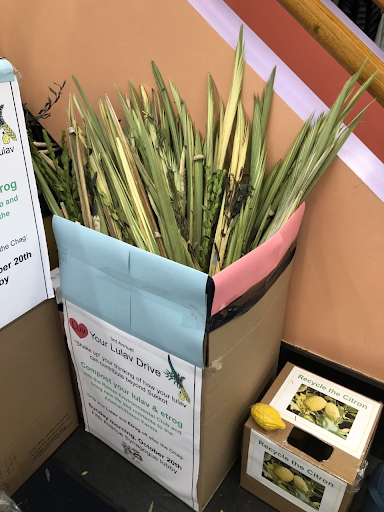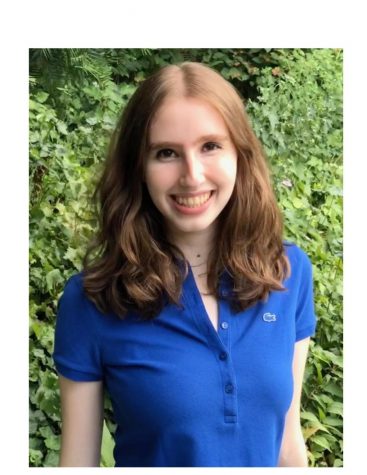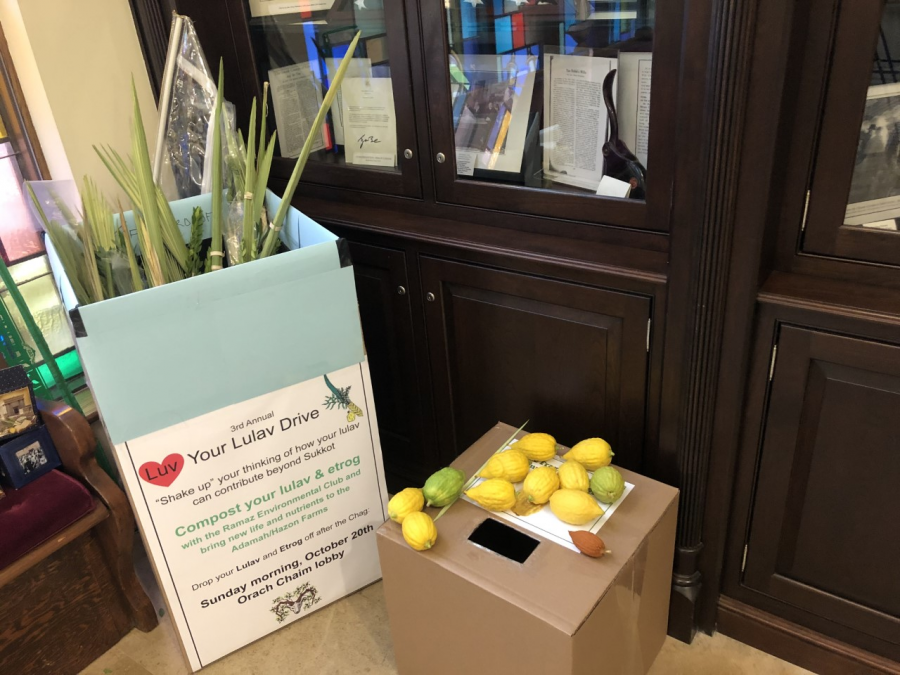Honoring Creation: Luv Your Lulav Drive 2019
Ramaz students pride themselves on procuring the most robust and beautiful etrogim for Sukkot. The arba minim are treated with great care during these seven days, but at the conclusion of the holiday, they are often discarded or abandoned in shul after Hoshana Rabba services.
Over the last three years, the Ramaz Environmental Club, under the guidance of its faculty advisor, Ms. Benel, expanded on its now popular Luv Your Lulav Drive. The Environmental Club at Ramaz continues to “shake things up” with lulavim in particular, and takes pride in being a true “grassroots” organization. The Luv Your Lulav project was inaugurated in 2017, with lulavim and etrogim collected from the Ramaz Upper School and Congregation Kehilath Jeshurun.
The concept of the drive is to repurpose lulavim and etrogim by collecting them from students and teachers at Ramaz and synagogues after Sukkot for composting. These arba minim are then transferred to the Isabella Freedman Jewish Retreat Center in Falls Village, Connecticut. This environmental center runs their own farm, growing fruits and vegetables that are served to guests visiting for Shabbat, Jewish holidays, or yoga and music retreats. In addition to their locally grown produce, all food scraps are composted on-site. Our lulavim and etrogim are incorporated into this compost. Isacc Amar ‘21 specifically appreciated our efforts in transporting the lulavim and etrogim to the Hazon Farm part of the Isabella Freedman Center and noted that “this is different than composting food scraps; we are composting religious objects!”
It is significant that the lulavim and etrogim are to be composted at a Jewish farm, as opposed to any local compost center in New York City. Fellow Environmental Club member Arielle Levy ’21 said that “since the lulav and etrog are used for Jewish rituals on Sukkot, it is fitting that they be repurposed by a Jewish organization.” Arielle Butman ’21 feels that the interests of the Jewish and general community are combined to have a larger impact: “This creates a bigger impact on our community from an environmental and Jewish standpoint. This also raises awareness and educates the public.” Once the lulavim and etrogim decompose, this organic matter is incorporated into the soil for planting, and the nutrients benefit plant growth.

The Luv Your Lulav Drive makes good use out of the minim even after their religious and practical use during the holiday has ended. Levy said that had she not donated her lulav and etrog for composting, “they would have just been thrown out.” In general, people are becoming more receptive to sustainability and the urgency to protect the environment. Rabbi Weinstock, Associate Rabbi of KJ, said that Sukkot focuses on “what it means as far as our connection to the environment. A composting project puts some attention on the nature side of the holiday. After all, we’re living outside for seven days.” Rabbi Weinstock quoted Midrash Kohelet in that we “need to take care of God’s creations.” Ms. Benel adds, “caring for our Earth is a universal, humanistic value that is a fusion of a school project, a community task, and Tikkun Olam.” She quoted Beresheit, saying that our responsibility for caring for the earth is, “LeAvdah ULeShemarah”—to work it and to watch it.
Due to the success of the past initiative, the Environmental Club extended the project this year to include two neighborhood synagogues, making it even more of a community-wide effort. Lulavim and etrogim were also amassed from Fifth Avenue Synagogue and Congregation Orach Chaim. Rabbi Eli Babich of Fifth Avenue Synagogue concurs that the Luv Your Lulav project “aligns perfectly with Sukkot as a celebration of God’s creations, as we are commanded to live and eat outdoors.” We are also directed to “treat the lulav and etrog properly at the conclusion of the holiday.” He thanked us for our efforts for enhancing the holiday. The total minim count from Ramaz and from the three shuls was approximately 500 lulavim and 250 etrogim to be composted. The rabbis from each shul were happy to participate and helped to support the drive by encouraging their congregants to give a new life (or afterlife) to their lulav and etrog. All the Rabbis agreed that the holiday of Sukkot is a reminder to us all that we are strongly connected to the Earth and have to thank God for all we derive from His creations. Repurposing our lulavim and etrogim to enhance the Earth is not just environmentally correct, but is a very spiritual Jewish act.

Samantha is a passionate journalist and loves writing for The Rampage because it is a window into the life of the student body that honestly reports true...



